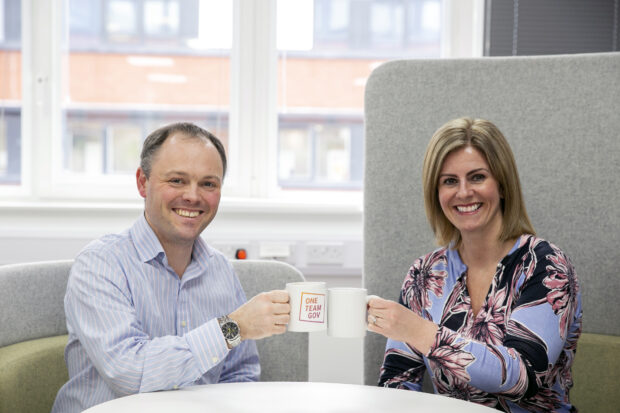Our digital department has around 250 DDaT professionals working in multidisciplinary teams.
Some of our engagement tools and annual people survey results reflected lower levels of engagement across our digital department. Dan Pink has written a great book called Drive that covers what motivates people.
Dan Pink suggests that there are 3 main things that motivate people.
- Autonomy - the ability to control what you do and when you do it and who you do it with.
- Mastery - the desire to improve and get better at something.
- Purpose - working toward some bigger picture common goals.
We've historically been a hierarchical, project focussed organisation with little time for the 'R' in R&D. Twelve months ago, we decided to try an experiment to develop the autonomy and mastery (and therefore morale) of our teams by introducing ‘innovation time’.
Some of our developers voluntarily code on their pet projects in the evenings and weekends. Companies House is an awesome place to work. We wanted to harness those creative and innovative skills and give them the opportunity to develop themselves while at work.
Convincing the management
Half a day per week is equivalent to 10% of the working day. Some people raised their hands in horror!
How can we waste our people's time by letting them do whatever they want, instead of the valuable project work we need them to do?
Needless to say, it took a bit of convincing.
There are benefits to the individuals. They could use this time to:
- learn new technologies, like NodeJS
- get certified in technologies, like AWS and Java
- improve morale
There are also benefits to the organisation. We’ve noticed that:
- motivated people will achieve more
- the things that irritate people get fixed, as they finally have space to do so
- ad hoc teams form to work on things and get to know each other
It was important to point out that 100% utilisation is not more productive. In fact, like a motorway, higher utilisation results in queues.
We started by trialling innovation time with one team for a couple of months. Once we realised it did not have a negative impact on delivery, we rolled it out across the department.
Initially, we suggested that all teams take every Wednesday afternoon off from their project work to allow collaborative innovation across the teams. After all, the collective hive mind of our people is far brighter than anything a hierarchical leadership team could tell them what to do.
What has been done with the time
Certification
A number of people have used their time to get AWS Developer certification. Some have started working through their Oracle Java Certification exams.
"Alexa, ask Companies House: when are my accounts due?"
One of our lead developers, Mike, used his time to create a Companies House Alexa skill. You can use it to find out things like when a company's accounts are due, or who their directors are.
As part of this he learnt about AWS Lambda functions and it's a good example of how to use Companies House's public APIs. Feel free to fork our open source code and submit some pull requests.
Our user research team has been working to find out what the user need is, so we can progress development on Alexa and other voice assistants.
Curious coffee
Dafydd used his time to create Curious Coffee. This app helps to break down silos by matching 2 people from different departments across Companies House to meet up for a coffee and a chat.
In the process, Dafydd learnt about publishing to AWS Cloud infrastructure and the NodeJS programming language.
The benefit to the organisation has been great. To date, we've had over 120 people sign up and over 100 people have been matched.
If you like the sound of it, feel free to grab the Curious Coffee code.

Automated API testing
One of the teams used their time to investigate using the PostMan automated integration testing tool with their Concourse CI pipeline. This allows us to automate the testing of the APIs we expose from our microservices.
Not all plain sailing
There have been many people reluctant to take part in innovation time for a number of reasons. We've tweaked the approach along the way to maximise participation.
Changing habits
It's hard to encourage people to change a habit. It takes time to get used to the idea that it's okay to not do project work – and not feel guilty. If one person on the team chooses to use their time to do project work, then the others feel they should too.
It's culture change, and that takes time.
More flexibility around timing
Wednesday afternoons did not work for everyone. Let's face it, prescribing when someone should be innovative is not necessarily logical.
We've iterated and relaxed it to encourage people to do it when it suits them. So, if they want to save up and do 2 days a month, then that's fine.
Innovation is not the same as creativity
Some people think they need to build some kind of all singing, all dancing solution to a problem. As this blog from the Harvard Business Review points out, smaller incremental improvements are equally valid.
It’s just the start…
It’s been successful and has really helped with morale. There's still plenty more we can do to encourage more people to make the most of it and help it become more of a habit.
We’ve been sharing the idea with other government departments and we’re gathering feedback. Watch this space to hear more.
And if you fancy joining us, please apply!
